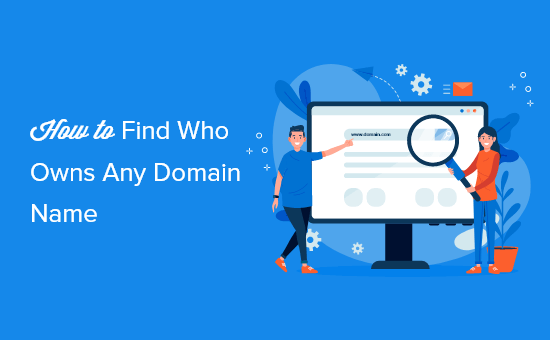
Do you wonder who owns the domain name you're trying to register? Then you may want to use a free service that will tell you who owns the domain and how to buy it. While this service can help you find the owner of a domain name, it doesn't guarantee that you will get the right person. In some cases, you may even be able to request the domain name from the owner, but privacy is important when it comes to personal details.
You can find registrant details through a free service
ICANN (International Corporation for Assigned Names and Numbers) is the organization that authorizes domain name registrars. Domain name registrants have certain rights, including administrative, billing, and technical. If you're interested in obtaining these details, using a free domain name registrant lookup service is a good idea. If you're unsure of who owns a domain name, incorrect information may result in missed opportunities.
You can request to buy a domain name
There are many ways to buy a domain name. One method is to contact the owner directly. The owner can be located through the WHOIS directory or through their website. You should negotiate with them to purchase the domain for a fair price. It is also advisable to check the domain's history and its Domain Authority. It's important to avoid wiring money to an unknown person over the Internet. One good way to avoid scammers is to use an escrow service. If the buyer is not comfortable doing so, you can use an escrow service to make the transaction more secure.
Another way to buy a domain name is to try to register the existing one. While it might be tempting to register a name you like, this may lead to legal problems. If you try to register an existing name, the original owner of the dot-com may argue that you are infringing on their brand. In this case, it's better to register the original name. If that doesn't work, try to change your focus to another name.
Another way to buy a domain name is to register it with an accredited registrar. If the domain registrar is unable to provide a valid address, they may be forced to close the domain. DNS servers around the world store databases for the domains. These servers are often referred to as authoritative name servers, or TLDs. These servers are responsible for administering the domain name system. In addition to registering domains, you can check whether someone has a similar name.
Once you've acquired a domain name, it's time to negotiate the terms. The price, how the domain will be transferred, and any other details are negotiated. The agreement should be in writing to protect both parties. You can get a sample domain sale agreement online. Always use an attorney if you're dealing with a higher-value domain. It's better to be safe than sorry.
Another way to purchase a domain name is to use a website building service. Many web hosting companies offer domains to their clients. You can also purchase a domain from a domain registrar. Domains are usually cheaper than website builders, and you can use different hosting companies to handle different tasks of a website. Then, once you have the domain, you can set it up. A domain name will give you a unique online presence for years to come.
When buying a domain, you should consider your brand, budget, and registration timeframe. The length of registration depends on your needs and budget. You can choose to purchase a domain for one year, two years, or three years. Most registrars offer different commitment options, and each carries a different startup cost. Once you've selected the right timeframe, you should contact your registrar for further details.
You can protect the privacy of domain owners
When registering a domain, you can choose to protect your personal information by making it private. This will protect you from identity theft and stalkers. It also prevents your domain from being sold to third parties. Some people choose to protect their privacy by registering their domain with a domain privacy service. These services can keep your details private, so your competitors cannot look up your information and use it to target you with spam.
A data breach can cost your company over $3 million. If you don't protect your domain from data miners, it can be vulnerable to hackers. And data miners can target new domain owners - often small business owners. Oftentimes, these new domain owners are targeted by spammers that try to get hold of personal information. The privacy of your domain name is important, as hackers can use it to collect information and sell it to advertisers.
If you're running a small business, having your contact information public is a great way for competitors to get information on you. You may think that your competitors won't steal your contact information from you, but having your contact information publicly available will make it easier for them to do this. Protecting your personal information is an excellent way to prevent this. If you're worried about privacy, you can even get a free domain privacy service to help protect your information.
You can also opt to hide your domain name from visitors. You can add a TXT record to the DNS zone file to keep your contact information private. In addition to privacy, you can also add auto-renew, custom email, and auto-renew. Google Domains customers can also add privacy to their existing domains. Upgrade to a higher plan through your account. For any questions, you can contact your domain registrar's support team.
Many web hosting providers offer domain privacy protection. These services are typically inexpensive and easy to set up. Protecting your domain name is an excellent choice for most users. However, it is important to choose a provider with the highest level of privacy protection available. In general, a domain privacy service will protect your domain from spammers and hackers. It is also worth the cost. So what's the catch? Domain privacy protection is not free.
By opting for domain privacy protection, you can keep your information secure and private. Using this service, your registrar will not be able to submit your personal contact information to the domain's Whois database. In addition to keeping your domain name compliant with ICANN rules, this service helps protect your personal information from spammers. Many website owners opt for privacy protection because of its many benefits. This service will make you more difficult to target and protect your privacy.
